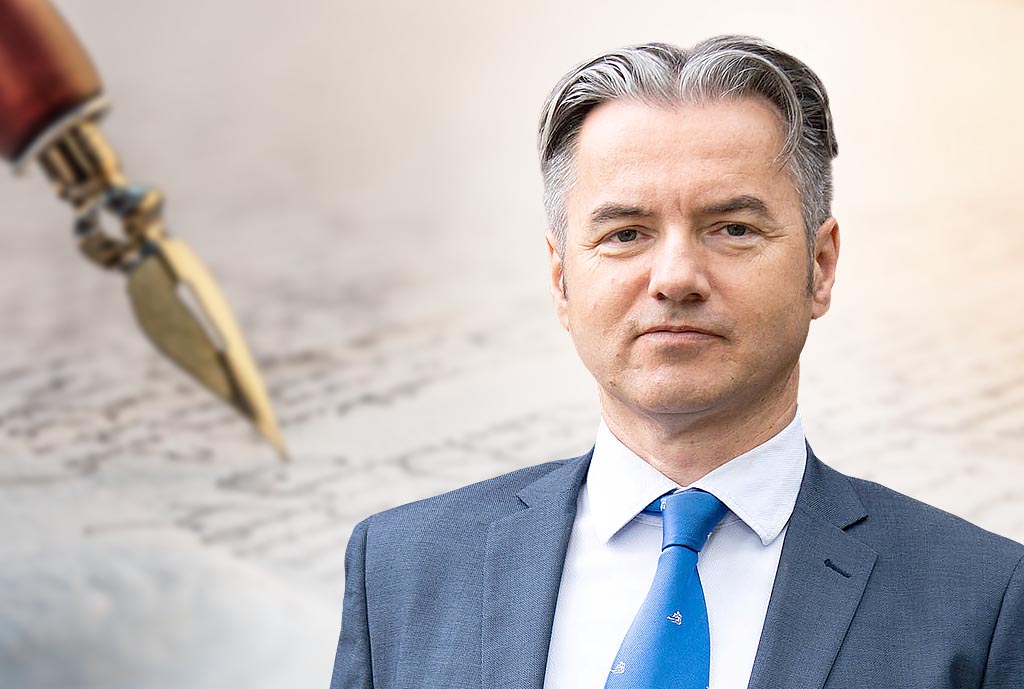By: Dr Metod Berlec
“The realisation of Slovenian state sovereignty is hindered by two structural barriers of a political nature: the organisational framework of the federation, in which the federation appropriates the regulation of a whole range of tasks that should be exclusively in the hands of the Slovenian nation as a sovereign nation, and the organisational framework of the centrally organised Yugoslav party. /…/ Tragically for the Slovenes, the demand for state sovereignty has been diluted due to the all-powerful authority of the federation, and the demand for democracy has been undermined by its Leninist elitist understanding. As a result, instead of state sovereignty, we have constant unitary vulnerability and interference in the internal affairs of the Slovenian nation, and instead of democracy, a one-party regime. The concrete situation is almost desperate, and hope is meagre.”
Although Dr Jože Pučnik, as indicated in the above text, was initially very sceptical about the possibility of democratisation and Slovenian independence even a few months after the publication of the famous 57th issue of Nova revija – Contributions to the Slovenian National Programme (February 1987), these events actually unfolded within a few years. In this process, Dr Pučnik, as the president of the Democratic Opposition of Slovenia (DEMOS) and later the ruling coalition DEMOS and the ‘father’ of the DEMOS government, firmly took the lead in the efforts for independence, which ultimately led to the successful plebiscite on December 23rd, 1990, and the declaration of independence and sovereignty of the Republic of Slovenia on June 25th, 1991. On that day, the first democratically elected assembly adopted the Basic Constitutional Charter on the Sovereignty and Independence of the Republic of Slovenia, the Constitutional Act for its implementation (the Charter declared Slovenia as an independent and sovereign state, while the Constitutional Act required the organs of Slovenia to assume the powers that were previously transferred to the federation by the constitutions of the Socialist Republic of Slovenia and the Socialist Federal Republic of Yugoslavia), and the Declaration of Independence. The day before, after great efforts in the assembly, a new coat of arms and flag were determined, and a series of laws were adopted, allowing Slovenia to take over the jurisdiction of the federation within its territory (including laws on citizenship, foreigners, passports, foreign affairs, foreign exchange operations, the Bank of Slovenia, and the law regulating the powers of the customs service).
As we know, on the evening of June 26th, 1991, the flag of the independent state of the Republic of Slovenia fluttered on the pole in front of the parliament, and the next day, on June 27th, 1991, the overt aggression of the federal army against Slovenia began. However, the federal army failed in Slovenia. The Slovenian armed forces, under the leadership of Defence Minister Janez Janša and Interior Minister Igor Bavčar, humiliated the army that was considered one of the strongest in Europe. Today, thirty-two years after the defence war for Slovenia, it is clear that we can be grateful to all those who led and defended the newly declared independent Slovenian state at that time. Recent examples show that this is by no means self-evident. Despite successful referendums (in the Kurdish part of Iraq in September 2017, in Catalonia in October 2017), both the Kurdish and Catalan attempts at independence miserably failed. A similar situation occurred in Scotland, where in 2014, over 55% of the population decided to remain part of the United Kingdom or Great Britain. Newly, the Scots now have a prime minister of Pakistani origin, which further diminishes their chances of independence, as immigrants feel much more comfortable in a globalised multicultural society than in a monocultural one. It is clear that without successful military defence of independence, a newly formed state cannot ‘stand and exist’ since the international community recognises the newly formed state only when it is capable of defending/preserving sovereign and effective control over a specific territory and population that has lived there for centuries.
The case of Ukraine is somewhat different, as it officially became an independent state at the end of 1991 when the Soviet Union collapsed. However, Ukraine is also currently fighting against Russian military aggression for its independence and sovereignty, for territorial integrity, for its existence under the sun. Therefore, we, Slovenes, must also be aware that nothing is given forever, and we must oppose all those for whom an independent Slovenia means nothing. Including those in power…

